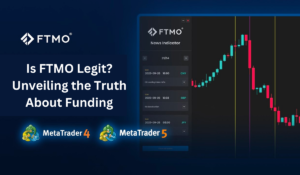Introduction:
Trading scams pose a significant threat to investors and traders, as fraudsters continue to devise new tactics to deceive individuals and steal their hard-earned money. Being aware of the various types of trading scams and understanding how to protect yourself is crucial in today’s financial landscape. In this comprehensive guide, we will delve into the most common trading scams, provide detailed insights, and offer practical tips to help you avoid falling victim to these fraudulent activities.
Boiler Room Scams
Boiler room scams involve the creation of fake companies to deceive potential investors. Fraudsters go to great lengths to make their operations appear legitimate, often setting up websites and renting temporary office spaces. They employ high-pressure tactics and promise high returns to convince individuals to invest. Once they have received the funds, they vanish, leaving victims with significant losses.
Bucket Shop Scams
Bucket shop scams are sophisticated schemes that mimic the performance of reputable brokers. Scammers create platforms or even replicate entire websites of established brokers, tricking investors into believing they are dealing with legitimate entities. After investors deposit their funds, the scammers disappear, leaving victims with no recourse.
Pump and Dump Schemes
Pump and dump schemes involve artificially inflating the value of a stock or cryptocurrency and then selling it at a profit, leaving other investors with substantial losses. Scammers often pose as analysts, providing false information and insider tips to attract potential investors. Social media platforms are commonly used to spread these fraudulent schemes.
Ponzi and Pyramid Schemes
Ponzi and pyramid schemes rely on recruiting new investors to sustain the illusion of profitability. Initial investors may receive returns to encourage them to promote the scheme further. However, these returns are financed by funds from new investors, and the scheme eventually collapses, leaving unsuspecting victims with substantial financial losses.
Fake Gurus and Investment Seminar Scams
Fake guru schemes involve self-proclaimed experts claiming to possess secret strategies for success in trading or investing. These individuals often flaunt lavish lifestyles to entice potential victims. They conduct paid seminars or sell courses that promise to reveal their “secrets.” However, the information provided is often vague or lacks substance, leading investors to make uninformed decisions.
Advance Fee Schemes
Advance fee schemes involve scammers posing as traders who promise to recoup losses or provide refunds for a fee. Victims who have recently suffered investment losses may be targeted. However, after receiving the advance fee, the scammers disappear, leaving the victims with further financial setbacks.
Signal Seller Scams
Signal seller scams involve individuals or companies selling trading signals or recommendations based on alleged expert analysis. These scammers charge fees for their services but fail to deliver the promised profitable trades. Testimonials and endorsements from seemingly credible sources are often used to deceive victims.
Software Scams
Software scams revolve around the sale of Forex robots or expert advisors that claim to automate trading and generate substantial profits. These programs often feature deceptive marketing tactics and false performance statistics. In reality, they rely on historical data and cannot adapt to changing market conditions, leading to poor trading outcomes.
Manipulation of Bid/Ask Spreads
Scammers may manipulate bid/ask spreads, creating artificially inflated spreads that increase trading costs for investors. By offering less favorable pricing, these scammers take advantage of unsuspecting traders who are unaware of the normal market rates.
Unregulated Brokers
Unregulated brokers operate without the oversight and regulations imposed by financial authorities. While not all unregulated brokers are fraudulent, the lack of regulatory supervision poses a higher risk of financial loss and limited recourse for investors in case of malpractice or misconduct.
How to Identify Trading Scams
Identifying trading scams requires vigilance and thorough research. Here are some essential tips to help you recognize potential scams and protect yourself:
- Checking Reputation and Regulation: Research the reputation and regulatory status of brokers or investment companies before engaging with them.
- Conducting Thorough Research: Utilize online resources, reviews, and forums to gather information about brokers or investment opportunities.
- Verifying Credentials and Licenses: Ensure that brokers and investment advisors are properly licensed and regulated by reputable financial authorities.
- Avoiding Unrealistic Promises: Be skeptical of investment opportunities that guarantee exceptionally high returns with little to no risk.
- Exercising Caution with Unsolicited Offers: Be wary of unsolicited offers and cold calls from unknown individuals or companies.
- Securing Funds with Regulated Brokers: Prioritize working with regulated brokers that offer investor protection and segregation of funds.
Conclusion
In conclusion, trading scams are a persistent threat in the financial industry. By familiarizing yourself with the various types of scams and adopting a cautious approach, you can significantly reduce the risk of falling victim to fraudulent activities. Remember to research and verify the credentials of brokers and investment opportunities, avoid unrealistic promises, and exercise caution with unsolicited offers. Safeguard your funds by working with regulated brokers that prioritize investor protection. Stay informed, stay vigilant, and protect your financial well-being.
Key Takeaways:
- Educate yourself about the different types of trading scams to recognize red flags and protect your investments.
- Thoroughly research brokers and investment opportunities, checking their reputation, regulation, and credentials.
- Be skeptical of unrealistic promises of high returns with minimal risk.
- Exercise caution with unsolicited offers and cold calls from unknown individuals or companies.
- Prioritize working with regulated brokers that provide investor protection and segregation of funds.
Note: The content provided is for informational purposes only and does not constitute financial or investment advice. Always conduct your own research and consult with a qualified financial professional before making any investment decisions.








